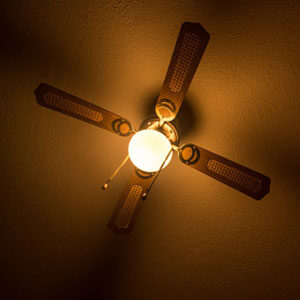- Home
- About Us
- Services
- Home Buyer Inspection
- Sellers Pre-Listing Inspection
- Commercial Inspection
- New Construction Inspection
- 1-Year Builder Warranty Inspection
- Radon Inspection
- Mold Inspection
- Infrared Thermography Inspection
- Insulation Inspection
- Birmingham Plumbing Inspection
- Birmingham Roofing Inspection
- Electrical Inspection
- Reviews
- Sample Report
- Schedule
- Contact Us
- Info
Birmingham Electrical Inspection
Birmingham Electrical Inspection

You’d be shocked by how many houses have electrical wires that aren’t up to code. Some of these wires are too old or made from outworn materials. Others might be damaged due to normal wear and tear or chewed up by rates — making them unsafe.
Naturally, it’s hard to know whether wires are up to code just by looking at them. That’s where expert home inspections come into play.
What You Need to Know About Home Electrical Inspection
Before you tell me if you ought to set up a home electrical inspection, let’s review how they work.
A home electrical inspection is an extensive review of your home’s entire electrical system performed by an expert.
An appropriate electrical evaluation follows a procedure stipulated in the National Electrical Code (NEC).
Why Is The NEC Important?
The NEC is a set of electrical safety compliance standards that the National Fire Protection Association continuously re-evaluates and updates with input data from electrical experts all over the US.
When electrical contractors figure out whether something is “up to code” or not, the NEC is what they are about. The NEC establishes the minimum safety requirement for all home electrical fixtures, systems, and appliances. If something is “up to code,” that suggests it complies with the minimum security standard.
Home Electrical Inspection Checklist
Throughout the inspection, certified electrical contractors will assess the safety of all electrical devices in your house by following a checklist. This will consist of, among other household elements, inspecting:
Circuits – Your electrician will inspect to see if you have the correct types and number of courses to serve the needs of your house — this is particularly essential if you have added to its existing structure.
Wires – Your wires might be old, damaged, or set up incorrectly, leading to a dangerous circumstance if left unaccounted for.
Outlets – Some outlets have bad connections or get easily too hot due to a circuit overload.
Service Panels – Old or defective breakers can trigger your appliances to quit working, the lights to flicker, or the circuit box to blow.
Electric Meter – Meters can start to wear and tear after many years, so it’s important to guarantee they’re functioning properly. They do not show indications of rust or water damage that might compromise their quality.
At the end of the inspection, you will have a detailed understanding of your home’s electrical safety.
CRUCIAL: If any electrical feature does not “pass” evaluation, it fails to fulfill the minimum safety compliance requirements established by the NEC.
Why Do Wires Typically Fail an Electrical Inspection?
DID YOU KNOW … that wires are some of the most common electrical features to “fail” the inspection? That is because wires are hard for non-professionals to look at.
Here are a few common reasons why wires might fail:
Age
Wires may wear down in time, especially if you’ve had them installed long ago. Older wires are likewise more likely to be made of substandard material or with low-quality methods like knob-and-tube wiring.
The older your home, the more likely that your electrical wires are just as old. If you can’t recall the last time you had your older house’s wires inspected, it’s most likely time to do so.
Material
Many homes constructed in the 60s and 70s have aluminum wiring. Aluminum is considered a poor electric conductor and wiring for several factors. It rusts, breaks, easily overheats, and it doesn’t integrate well with more recent installations.
Installation
If your wiring installations were done by non-professionals or were installed several years ago, there’s a good chance they were set up improperly. Professional electrical inspectors can examine whether your original wiring works properly and advise how to repair it if it doesn’t.
Damage
Wires sustain damage for all kinds of reasons. If wires come dismounted from their connection points or fray, they could cause potential fire hazards or more costly electrical repairs. Inspectors can determine wire damage even in its early stages.
Grounding
Grounding existing circuits is not required in the electrical code, but it requires all new installations to include grounding. If you don’t have your courses dropped, your inspector can inform you and recommend the best approach to stay safe.
Examine Your Wiring Before Your Home Electrical Inspection.
It can be tough to determine how your home’s electrical wiring might fail to meet code (that’s why home electrical inspectors are here for you), but there are several things to look for.
If you want to know-how updated and safe your electrical system is, watch for:
Outlet staining or damage
Your outlets will often be the first indication that something is wrong with the wires behind them. If your outlets look damaged, discolored, or smell burnt, it’s most likely because of a wiring issue. When circuit wires fray or overheat, they often melt the closest outlet. If your outlets ever spark a fire, then something is seriously bad.
Wire material
If you can find any exposed wires, try to find out what it’s made of. Electrical manufacturers mark aluminum wires with “Al” at various locations around their sheath.
It would be best if you took this opportunity to look for any fraying or damage to the wire sheath. If wires look frayed, chewed, rusted, or otherwise damaged, they will likely fail inspection.
Frequently tripped circuit breaker.
Your circuit breakers trip to protect your wires, appliances, and fixtures from excess voltage. The more often they trip, the more likely there’s a problem in your house’s circuitry.
If your wires can’t handle the voltage required, your circuits will break quite often. Damage or faulty connections will likewise trip circuit breakers.
Two-pronged outlets
If your electrical wall outlets have two prongs instead of three, they are not grounded. Although the electrical code doesn’t strictly require grounding, it is strongly recommended.
A lack of grounding is also often an indication that your wires are old, which might add to all types of problems. Consider upgrading any two-pronged outlets in your home and getting an electrical inspection for good precaution.
Schedule a Home Electric Inspection
If you don’t think your electrical wires follow electrical security standards or are up-to-code, do not panic: that’s why we home inspectors are here to assist! A professional electrical contractor can inform you of what’s wrong with your home’s current electrical condition and educate you on how to fix it.
“Failing” an electrical inspection isn’t an issue; it’s how you deal with a problem that matters most.
Call Us At (205) 835-0539 For Your Electrical Inspection Birmingham, AL Today!
We look forward to hearing from You!
 A B Home Inspections, Inc. | Let this experienced Birmingham AL Home Inspection company help keep you from buying The Money Pit. We’ll alert you to the health or safety issues and maintenance needs of the home you’re looking to buy.
A B Home Inspections, Inc. | Let this experienced Birmingham AL Home Inspection company help keep you from buying The Money Pit. We’ll alert you to the health or safety issues and maintenance needs of the home you’re looking to buy.

